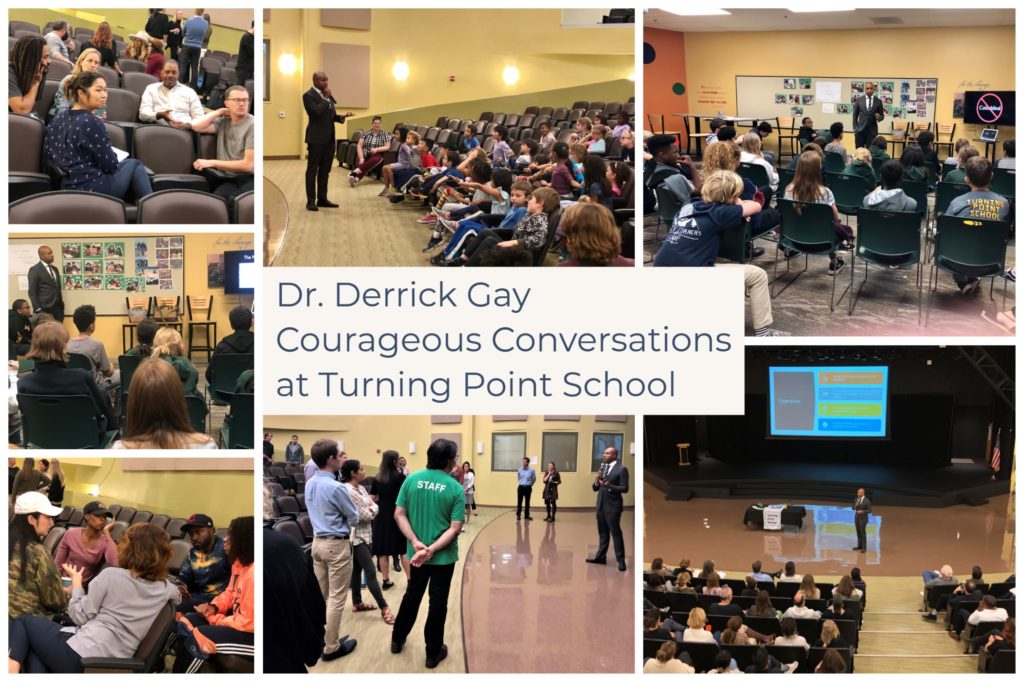I want to thank the parents who attended Dr. Gay’s first parent fist workshop in our three-part series on having Courageous Conversations with our children. We had record-breaking attendance, for which I was very grateful and proud.

I appreciate the openness you brought to the session in discussing how we can make Turning Point an environment where all our children can develop a positive identity and feel a sense of belonging. I am gratified that we are working together to understand the ways in which social structures can present barriers—in different ways—to a feeling of true inclusion for some of our community members, and that we are together learning how to overcome some of these barriers.
I want to reiterate a few of the key moments and messages from Dr. Gay’s visit for those who were unable to attend.
A positive self-identity is critical for healthy development, as it protects children in the face of discrimination and gives rise to self-confidence.
Children develop positive self-identity through open conversations, being valued by peers, experiencing supportive relationships and settings, and by seeing other people with similar identities be appreciated and valued.
A recent study by Sesame Street and the University of Chicago demonstrated that children as young as preschool notice and talk about difference in race, class, gender, culture, and religion. Open conversations with even our youngest children can help them learn about themselves and others.
As educators and parents, we can build a broader base for recognizing the positive values of various social identity factors. We want to shift the conversations from reactive (the conversations we need to have after something hurtful is said) to proactive (conversations about the joy and pride one feels about their heritage, color, family structure, and beliefs).
As Dr. Gay noted, it is so important to establish our mindset for these conversations with our children and with others. He recommends the following:
- Listen to understand (rather than listening to respond)
- Distinguish between debate (where someone wins) and deliberation (a careful discussion)
- Accept the speaker’s viewpoint as true for her/him/them
- Distinguish between comfort and safety (learning comes in the discomfort zone)
- Expect and embrace a lack of closure
Some of these mindsets may be unfamiliar, so it can take time for us to get comfortable with and internalize them.
We want this work to be sustainable, so it is vital that we do it intentionally and carefully together for the good of our children and of our community.
Resources
- You can find a list of resources that Dr. Gay recommends for further reading and discussion here.
- You can sign up for Dr. Gay’s monthly newsletter for educators and parents.
- Read a press release of The Sesame Workshop study on the role of social identities in children’s lives.
- Read the whole Sesame Workshop study, Identity Matters, here.
Again, I am so grateful for all who are lending their time, attention, and insights to this conversation—parents, teachers, staff, and students. I look forward to welcoming you to further conversations as we continue our work with Dr. Gay throughout the course of this year, and beyond.
Warmly,
Laura
Laura Konigsberg
Head of School
lkonigsberg@turningpointschool.org


































